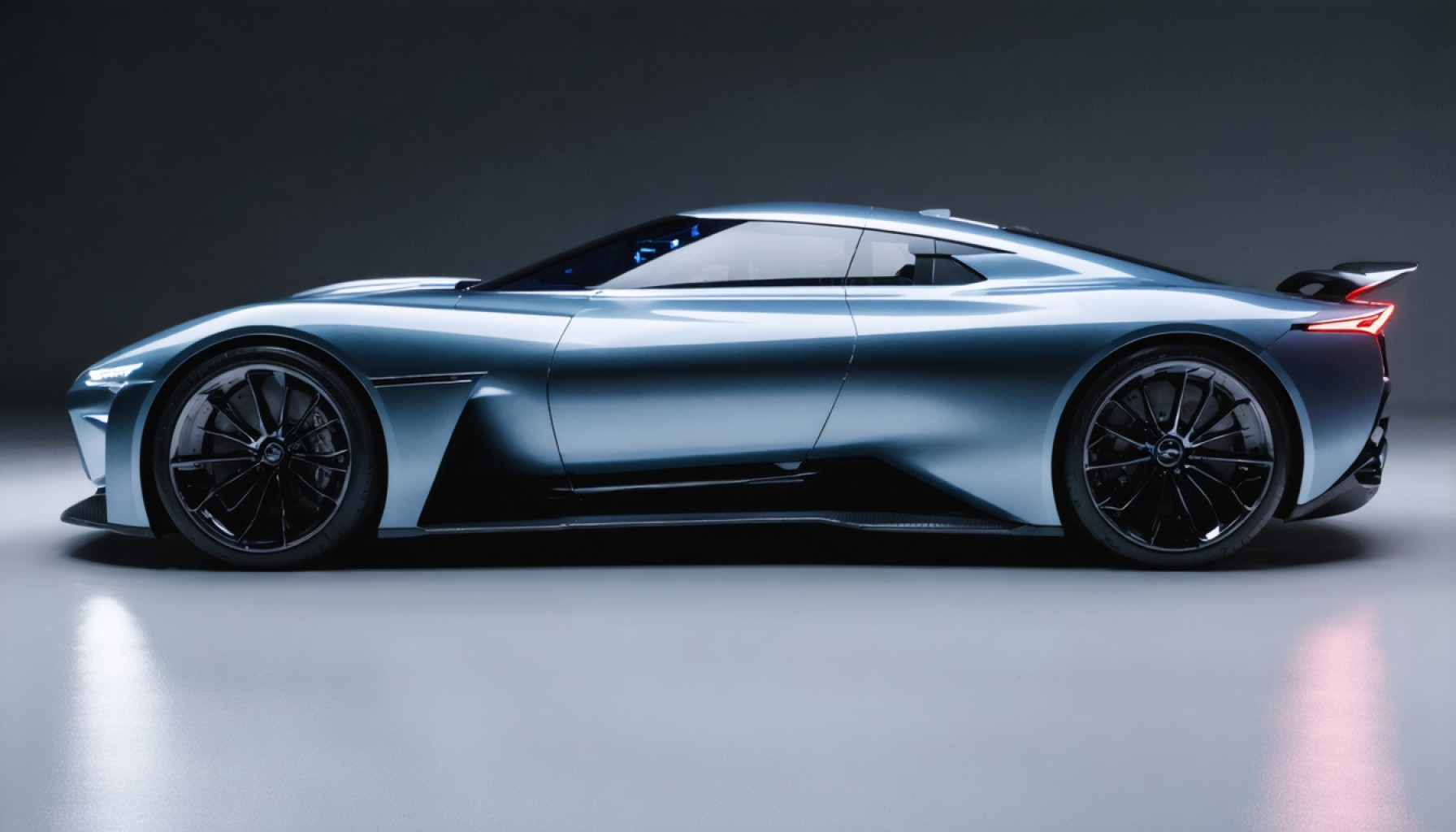- Nissan is advancing electric vehicle technology with the aim to launch an all-solid-state battery (ASSB) by 2028, promising enhanced efficiency for electric and hybrid vehicles.
- The ASSB is designed to charge to 65% capacity in just five minutes, offering convenience comparable to traditional gas stations.
- The battery features a lithium-metal anode and sulfur electrolyte with a target energy density of 1,000 watt-hours per liter, surpassing current lithium-ion batteries.
- The new technology is resilient, capable of withstanding high temperatures up to 212 degrees Fahrenheit (100 degrees Celsius), enhancing safety and longevity.
- Nissan’s development avoids using costly rare materials like cobalt, opting for nickel-manganese and sulfur-manganese cathodes to reduce environmental impact and costs.
- With a pilot plant set up, Nissan is moving towards mass production amidst competition from major industry players, potentially driving global advancements in battery technology.
A quiet revolution in electric vehicle technology echoes across the sleek design floors and bustling labs of Nissan, where engineers are meticulously crafting the future of energy storage. Their mission? To bring to market an all-solid-state battery (ASSB) by the end of Japan’s fiscal year in 2028, delivering a jolt to both the electric and hybrid vehicle industries with unparalleled efficiency.
Beneath Nissan’s gleaming corporate facade lies a determined ambition to transform automotive energy consumption fundamentally. The company’s latest technological marvel promises to charge to 65% capacity in a mere five minutes—an audacious claim that far surpasses the sluggish pace of today’s EV chargers. Imagine the freedom and speed akin to a gas station stop, revolutionizing the electric vehicle landscape.
To understand the innovation’s core, picture a lithium-metal anode tethered to a sulfur electrolyte. This blend, subtly powerful and meticulously engineered, crown Nissan’s battery with a density target of 1,000 watt-hours per liter, outstripping present lithium-ion counterparts. Beyond radical efficiency, the ASSB embodies resilience, withstanding temperatures soaring to 212 degrees Fahrenheit (100 degrees Celsius), a quality promising longevity and safety.
Shunning the reliance on rare cobalt, Nissan is exploring nickel-manganese and sulfur-manganese cathodes. This not only trims production costs but also lessens environmental impact, marking conscientious progress in sustainable transportation solutions.
The unveiling of their pilot plant marks the crescendo of Nissan’s relentless pursuit, bringing them closer to mass production. As industry titans like Mercedes and several Chinese firms converge on similar frontiers, the combustible air of competition could yield breakthroughs benefiting the global market.
So, as we steer into an electrified future, Nissan’s resolve sparks an exciting chapter in battery technology. It’s a race against time and a testament to human ingenuity—a story of passion and persistence poised to rewrite the rules of the road.
Revolutionizing Electric Vehicles: Inside Nissan’s Groundbreaking Battery Technology
Understanding Nissan’s All-Solid-State Battery Innovation
Nissan’s ambitious project aims to redefine the electric vehicle (EV) industry with its all-solid-state battery (ASSB) technology. This innovation promises not just efficiency, but a monumental shift in how we perceive electric mobility. Here’s what you need to know beyond the basic facts.
How All-Solid-State Batteries Work
– Lithium-Metal Anode: At the heart of Nissan’s ASSB is the lithium-metal anode. This component allows for higher energy density compared to traditional lithium-ion batteries.
– Sulfur Electrolyte: This replaces the liquid or gel electrolytes found in conventional batteries, enhancing safety by reducing flammability.
– High-Temperature Tolerance: With the ability to withstand temperatures up to 212°F (100°C), these batteries promise improved safety and lifespan.
Environmental and Economic Impact
– Cobalt-Free Design: The use of nickel-manganese or sulfur-manganese cathodes reduces reliance on cobalt, a rare and ethically contentious material. This shift not only lowers production costs but also minimizes environmental impact.
– Sustainability: By reducing the need for rare earth elements, Nissan contributes to more sustainable manufacturing practices in the automotive industry.
Market Forecasts and Industry Trends
– Market Growth: According to Allied Market Research, the global solid-state battery market is projected to grow significantly, reaching $1.2 billion by 2030 due to advancements like Nissan’s ASSB.
– Competitive Landscape: Companies like Toyota, BMW, and QuantumScape are advancing their own solid-state battery technologies, intensifying the race for innovation.
Pressing Questions Answered
What are the benefits of solid-state batteries over lithium-ion batteries?
– Higher Energy Density: Capable of delivering more power per unit, enhancing vehicle range.
– Faster Charging: Nissan claims a 65% charge in just five minutes, drastically reducing downtime.
– Improved Safety: Solid electrolytes eliminate risks associated with liquid electrolytes, such as leaks and fires.
What challenges do all-solid-state batteries face?
– Manufacturing Complexity: The technology is still in its infancy with challenges in large-scale production.
– Cost: Initial costs can be higher compared to traditional batteries, though prices are expected to decrease with technological advancements and mass production.
Real-World Use Cases
– Electric Vehicles: The primary application remains in EVs, where longer range, faster charging, and improved safety are paramount.
– Consumer Electronics: Beyond vehicles, this technology can revolutionize the battery life and safety of smartphones and laptops.
Pros & Cons Overview
Pros:
– Faster charging times.
– Greater energy density.
– Higher safety standards.
– Reduced environmental impact.
Cons:
– High initial production costs.
– Technological and scalability challenges.
Actionable Recommendations
– Stay Informed: As the technology progresses, keep an eye on how these batteries integrate into new vehicle models.
– Consider Long-Term Investment: Companies pioneering solid-state batteries may present lucrative investment opportunities.
For more insights into automotive technologies and sustainability practices, you can visit the official Nissan website at Nissan.
Quick Tips
– Check for Compatibility: Always ensure any new battery technology is compatible with existing systems.
– Follow Industry News: Technologies like ASSB are rapidly evolving, so staying updated is crucial.
Nissan’s dedication to advancing battery technology marks a pivotal shift not just for their brand but for the automotive industry and beyond. As these batteries move closer to market release, they promise to redefine the benchmarks for efficiency, safety, and sustainability in electric vehicles.
